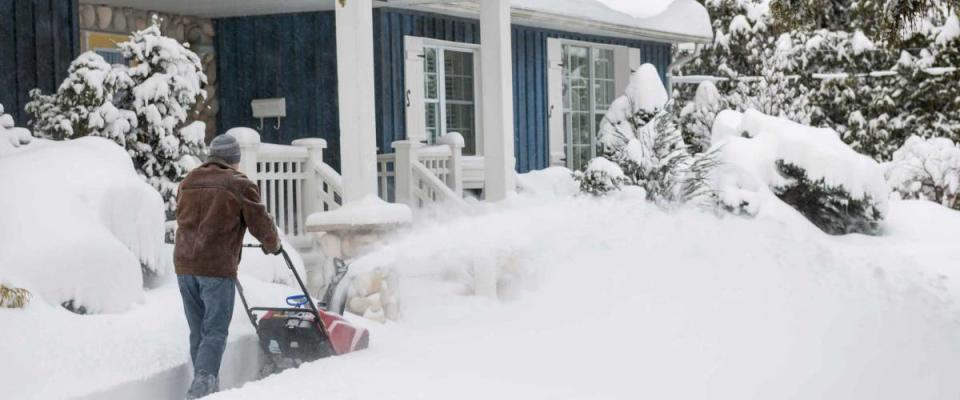When is the best time of year to sell your house?

Getting the best price for your home can depend a lot on timing. Certain seasons, months, days of the week and even specific dates on the calendar are often much better — or worse — than others.
Of course, there are other factors that impact your decision, including current mortgage rates (which in 2020 have never been lower), competition in your area and the type of buyer you’re targeting. You might have perfectly good reasons for selling at any time of year.
But here’s what the data says about the right time to put your home on the market — even in this unusual year — and the drawbacks for every season.
Spring

Looking at the U.S. as a whole, May is the best month to sell your home — in a normal year. On average, you’ll get a price that’s 5.9% over market value, better than in any other month, according to real estate information company Attom Data Solutions.
To get even more specific, data from listing site Zillow shows that homes sell fastest and for the most money during the first two weeks of May. Homes sell 18.5 days more quickly than average and for $1,700 more.
Why early May? Spring and its warmer weather tend to bring out house shoppers, and by May buyers who have children are usually concerned about getting settled into a new home in time for the upcoming school year.
Listing your home in the spring could be easier for you, too. Longer days and temperate weather will make all the small projects you need to do less of a hassle.
And then there’s the curb appeal. If potential buyers love what they see outside, they’ll want a closer look inside, too. Nice spring weather means you can landscape your front yard with precision.
Finally, don’t forget that tax refunds come in the late winter or early spring. That means more funds in your pocket for renos and more funds in buyers’ pockets, too.
While selling in the spring has lots of benefits, there could be some drawbacks, too:
Weather: Your geography is always going to affect this kind of seasonal advice. If early May is still cold and damp in your ZIP code, that will impact your listing’s success.
Competition: Your neighbors might read this article and have the same idea. If your area is saturated with homes for sale, that could drive prices down.
Construction: If the sun is shining in your area, your neighbors might be starting renovations of their own. Nothing says curb appeal like a big dumpster on your neighbors’ front lawn.
Summer

Summer sizzles for sellers. In fact, while early May holds the best period for selling your home, Attom says the top day of the year is June 28, when sellers get an average 9.1% more than the estimated market value of their homes.
For most of the country, summer offers the most consistent weather, with more daylight hours available to buyers and sellers.
Families with kids could feel a sense of urgency to settle into a new home before school starts. These buyers could make competitive offers and want to close faster.
But the sun might not always shine on your listing. Here are some drawbacks for selling in the summer:
Weather: One American’s balmy summer day is another’s unrelenting heat wave. Depending on where you live, the summer heat could suck the life out of your open house.
Too much supply: Be prepared for a lot of “For Sale” signs. Because it’s more convenient to list your home and move, there’ll be plenty of competition. You’ll need to plan to stand out from the crowd.
Vacation: On the other hand, with more people cooling off by the lake or on a family road trip, there could be fewer buyers on the market in your area. It depends on the type of person you expect will buy your home.
Fall

Looking at the national averages, fall isn’t the best time to sell. According to Attom, October is tied with December for the worst time to sell if you want to get a handsome return on your investment.
But if you’re reading this in 2020, you know that the year continues to skirt the norms.
The coronavirus pandemic kept people indoors for much of the spring, pushing built-up demand into the summer and fall. Plus, economic uncertainty has sunk mortgage rates to all-time lows.
Those factors are turbocharging the housing market — breaking sales records) along the way.
With low rates holding steady, the hectic pace of buying could continue for the rest of the year.
During an ordinary year, there will be less supply on the market in fall, which could work in your favour if you meet a motivated buyer. But there will be some drawbacks, too:
Weather: Say goodbye to sunny skies. Depending where you live, you’ll have to contend with colder, wetter weather during the fall.
Curb appeal: The perennials proudly displayed all season are now hibernating, and now you’ve got soggy leaves all over your lawn. Landscaping will get a bit tougher during the fall, which means your curb appeal might suffer.
Fewer families: If you’re trying to target buyers with children, selling during the fall can be tough. Most parents won’t want to uproot their children at the start of the school year.
Winter

One day of the year is worse than all others for sellers, according to Attom: Dec. 26. That's when buyers score their biggest discounts.
While conventional wisdom says winter is a tough time, not all sellers should hibernate.
The market can be good in places with warmer climates, like Florida and the Southwest, but even chillier locations can be reasonably hospitable during the cold weather months.
Many homeowners assume they shouldn't even bother trying to sell during the winter, so people who do put their houses on the market have less competition for buyers’ attention.
And those buyers tend to be more determined. These are people who, for whatever reason, may need to move now — or maybe they're just not willing to wait until spring, when there will be not only more homes but also more buyers competing for them.
While December is usually the slowest month on the calendar, real estate brokers tell Realtor.com there are a couple of reasons January can be a surprisingly hot month for home sales. Buyers often have year-end bonuses to spend, and the month seems to be a popular time for corporate relocations.
Here are the reasons sellers usually give winter the cold shoulder:
Tough buyers: Trying to sell around the holidays? Buyers may play hardball because they assume sellers must be very motivated if they want to make a deal over the holidays.
Budgeting: More people are tightening their belts in the winter, especially around the holidays. Plus, with tax time on the horizon, buyers might wait until the spring to get a better handle on their finances.
Weather: Not only do the days get colder and shorter, but your curb appeal will take a big hit during the winter. It’s hard to sell your home’s charming features when they’re buried in snow.

 Yahoo Finance
Yahoo Finance 